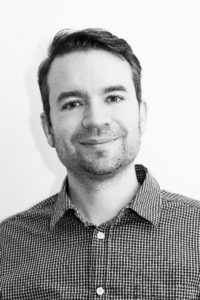New Development Fellow boosts infection research

Dr Andreas Haag joins the School of Medicine as a Research Development Fellow in the Infection and Global Health Division. He specialises in studies on the molecular interactions of Mobile Genetic Elements (MGE) in the pathogenic bacterium Staphylococcus aureus and how these interactions shape bacterial pathogenicity and evolution.
Following his undergraduate degree in Biotechnology in Germany and Diploma Thesis in Switzerland, Dr Haag joined the University of Aberdeen in 2007 to pursue a PhD in symbiotic bacteria-plant interactions. In 2011 he moved to Italy for his first post-doctoral position at Novartis Vaccines (now GSK vaccines) and initially focused on the characterisation of vaccine antigens for Neisseria meningitidis. During this period, he was awarded Marie Sklodowska-Curie Fellowship and moved his focus to Staphylococcus aureus where he studied how this bacterium controlled the expression of virulence factors and vaccine antigens during infection in in vivo models.
In 2016, Dr Haag returned Scotland where he worked at the Institute of Infection, Immunity and Inflammation at the University of Glasgow. During this period, he focused extensively on the molecular mechanisms governing the control of Staphylococcal Pathogenicity Islands (SaPI), a group of MGEs that frequently contain disease-causing toxins and that depend on a bacteriophage for their activation and dissemination.
Dr Haag believes the Covid-19 pandemic has increased public awareness on the different types of pandemics and further highlighted the relevance of his line of research. His work will be useful in finding ways to control the “silent pandemic of antimicrobial resistance”, which could prove a deadly concern in the next couple of decades, particularly with respect to bacterial infections from routine surgeries. Funding in this line of research will also be instrumental in preventing an exacerbation of antimicrobial resistance in developing nations where antibacterial drugs usage is less controlled.
At St Andrews, Dr Haag aims to establish a thriving lab to unravel the secret life of mobile genetic elements and how these subcellular interactions shape bacterial ecology, evolution, antimicrobial resistance, and virulence. He is excited about collaborating with his new colleagues and believes the closely-knit nature of the school’s researchers will be advantageous in finding common ground and leveraging resources.